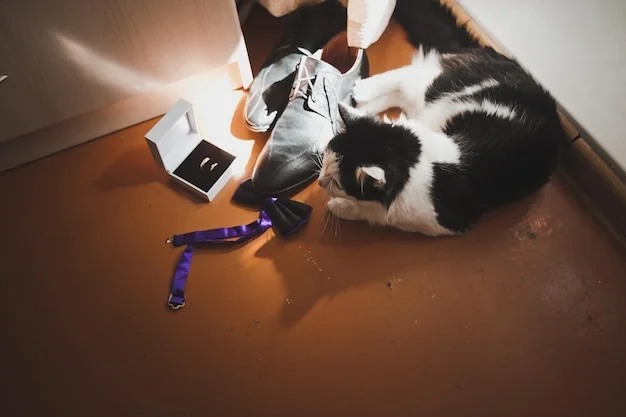Cats have been keeping humans on their toes for thousands of years. They seem to know things before we do—when a storm is coming, when their food bowl is about to be filled, or even when their owner is having a bad day. It’s no surprise that people have long speculated about cats having a sixth sense. But is there any truth to it, or are we just reading too much into their behavior? Science might have some answers, but as with anything feline-related, the real story is always a little more complicated.
Why Does Your Cat Always Know When You’re About to Leave?
If you’ve ever tried to sneak out of the house without your cat noticing, you probably didn’t get very far. Somehow, before you even reach for your keys, your cat is already giving you that knowing stare—or worse, blocking the door like a fluffy security guard. While it might feel like they’re psychic, it actually comes down to something much more practical: observation.
Cats are expert pattern readers. They notice small changes in routine, like the way you move differently when you’re getting ready to go versus when you’re just lounging. Your subtle cues—like picking up a bag, putting on shoes, or even shifting your energy—are enough for them to predict what’s coming. It’s the same reason why they always know when it’s mealtime, even when you swear you didn’t say the word “dinner.”
The Hidden Health Alarm No One Talks About
While cats are notorious for hiding their own illnesses, they have an uncanny ability to sense when something’s wrong with their humans. Many cat owners report that their feline friends become extra clingy or protective when they’re sick, often before they even realize they’re coming down with something. Scientists believe this could be due to their heightened sense of smell. Illness changes a person’s body chemistry, and cats might be able to detect those shifts—just like how they recognize the scent of familiar people.
But here’s where it gets really interesting: technology is starting to catch up with what cats have known all along. There’s now litter that can detect cat kidney disease, UTIs and more, simply by analyzing urine. It’s a game-changer for feline health, especially since cats are experts at masking their symptoms. Instead of waiting for signs that something’s wrong, cat owners can now get an early warning before it turns into a major issue. It’s like finally having a way to read their secret language—except this time, it’s backed by science.
Can Cats Predict Natural Disasters?
Cats seem to have a built-in warning system when it comes to earthquakes, storms, and other natural disasters. There are countless stories of cats acting strangely before an earthquake hits—hiding, vocalizing, or trying to escape moments before the ground starts shaking.
It turns out there might be a scientific explanation for this. Animals are sensitive to vibrations that humans can’t detect, which means your cat might feel the smallest tremors long before you do. They’re also tuned in to atmospheric changes, so they may sense shifts in air pressure before a storm. It’s not exactly psychic ability, but it is an impressive survival skill that has kept them ahead of danger for centuries.
The Unspoken Connection Between Cats and Energy
Ever noticed how your cat seems drawn to certain people but avoids others? It’s not random. Cats are highly sensitive to energy—both in their environment and in people. They pick up on body language, tone of voice, and even emotional states in ways that humans barely register. This is why some cats instantly bond with calm, gentle people while steering clear of those who are loud or unpredictable.
Some people believe that cats absorb negative energy, which could explain why they always seem to curl up next to their owners when they’re feeling stressed or sad. While there’s no hard science behind this, there’s plenty of anecdotal evidence. Many cat owners swear that their pets help regulate their emotions, acting almost like living mood detectors. Maybe it’s just the comfort of their presence—or maybe there’s something deeper at play. Either way, it’s one of the reasons why having a cat around can be so therapeutic.
Even when it comes to alternative remedies, cats seem to have a natural instinct for what works. Some holistic pet owners swear by mushroom tinctures for cats, believing they can support immunity and overall well-being. Whether or not your cat would willingly take it is another question entirely, but it’s fascinating how their intuition seems to align with things that promote health.
Do Cats Actually See Ghosts?
If you’ve ever caught your cat staring intensely at an empty corner of the room, completely fixated on something you can’t see, you’ve probably wondered if they’re seeing ghosts. It’s a classic cat behavior—suddenly perking up, following something with their eyes, and then bolting out of the room as if chased by an invisible force.
While science doesn’t confirm the ghost theory, cats do have exceptional vision, especially in low light. They can detect movement and flickers of light that are completely invisible to humans. It’s possible they’re seeing dust particles, tiny bugs, or even shadows that our eyes just aren’t equipped to pick up. That being said, if your cat starts reacting to something you can’t see, it might still make your hair stand on end.
The Mystery Lives On
No matter how much we try to explain cat behavior with science, there will always be things about them that remain a mystery. Whether they’re sensing our emotions, detecting health changes, or predicting disasters, their instincts are sharper than we often give them credit for. Maybe they don’t have a supernatural sixth sense—but they certainly have something close. And honestly, would we even want to know all their secrets? The mystery is part of the magic.







